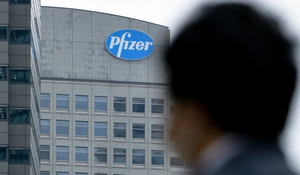While many countries have started vaccinating teenagers above 12 and are gearing up to vaccinate those in the 5-11 age group, India is yet to finalise its plans for children, despite giving over 100 crore doses to adults.
The roll-out is likely to be delayed by weeks, or even months, as the government's top priority right now is to vaccinate adults. Before starting administering the vaccine to those in the 2-18 age group, it wants to stockpile adequate supplies. It also needs to put in place a rollout plan and train healthcare workers. More than that, despite the expert panel’s green signal, it is going to follow a wait and watch policy and review data for foolproof scientific evidence and safety, say sources.
ZyCov-D, administered without syringes and needles, needs a ₹30,000 'Pharmajet' applicator jet and gun, which painlessly impinges the vaccine just below the skin. Who will bear the cost?
"Surveillance studies show about 60% healthy kids have been exposed to the virus without severe infections. Most had asymptomatic infections. We are waiting for the National Technical Advisory Group on Immunization’s (NTAGI’s) final advice on what is the best use of the stockpile, to the tune of about three crore doses, available to us," Dr. V.K. Paul, Member (Health), Niti Aayog, and Chairman of the National Expert Group on Vaccine Administration for Covid-19 (NEGVAC), has told ANI. He said the current priority is to vaccinate adults, who are at more risk.
Sources say only 30% of the target population has got both doses so far. This is less than 30 crore adults. The government had said in May that it plans to vaccinate around 100 crore people with 200 crore doses by December 2021. Children have better resistance against viruses than adults. Globally, many kids were infected with coronavirus, but with comparatively low hospitalisation and death rates. That is why the rollout, as in case of adult vaccines, is likely to be in a phased manner. Initially, priority will be given to children born with diseases such as heart problems, co-morbid conditions and compromised immunity, aver sources.
Unless adequate vaccines are stockpiled, the rollout cannot be done effectively, as nearly 30% of the population is less than 18.
However, in spite of the challenges, the government also wants to vaccinate those below 18 as schools and colleges are reopening. Ahmedabad-based Zydus Cadila's indigenously developed vaccine, ZyCoV-D, the world's first DNA-based coronavirus vaccine, was given approval by the Drug Controller General of India (DCGI) for emergency use in India in the 12-plus age group on August 20. A week ago, the Subject Expert Committee (SEC) on Covid-19 had asked the DCGI to grant market authorisation for Bharat Biotech's Covaxin for children in the 2-18 age group. The DCGI is yet to grant EUA (emergency use authorisation) and is reviewing more data given by the manufacturer. NEGVAC and NTAGI are also reviewing data to include these vaccines in the national immunisation programme.
Two more vaccines for kids are in the pipeline—Biological E's Corbevax and Serum Institute-Novovax combine's Covovax. Both are unlikely to hit the market this year.
Sources elucidate there are multiple issues to be sorted out before rolling out ZyCov-D and Covaxin for kids. Zydus Cadila was hoping to commercialise the three-dose DNA vaccine by September-end and scale up manufacturing to one crore doses by October. It was also stockpiling two-three million doses from its new facility in Ahmedabad. Unless there are adequate stockpiles, the rollout cannot be done effectively, as nearly 30% of the population is less than 18.
Two more vaccines for kids are in the pipeline—Biological E's Corbevax and Serum Institute-Novovax combine’s Covovax. Both are unlikely to hit the markets this year. Biological E received DCGI’s approval for initiating Phase II/III study to evaluate its CORBEVAX vaccine in children aged above five years only in September. Similarly, Covovax has been given permission for trials in the 7-11 age group, but the vaccine is likely to be out only in the first quarter of next year.
Sources say government is still negotiating with Zydus Cadila on the price, which is likely to be higher than the currently used vaccines. The issue is that ZyCov-D, which requires three doses, is administered with a 'Pharmajet' applicator jet and gun, which painlessly impinges the vaccine just below the skin. It will be the first time in the world that a vaccine will be given through an applicator jet. Further, it requires six doses per kid, as each dose is two shots in both arms. Sources say applicator guns, which cost nearly ₹30,000, have to be replaced after 20,000 shots. They also need trained healthcare workers; the training is on.
Zydus Cadila did not respond to a detailed questionnaire from Fortune India on progress of the rollout of the vaccine.
Though SEC has given a green signal for use of Bharat Biotech's Covaxin in the 2-18 age group based on data from a children-specific study, the clearance has come with riders. Bharat Biotech is yet to get the World Health Organization’s clearance for its adult vaccine, which is also delaying the launch of the paediatric vaccine. Zydus is also doing trials in the 3-11 age group, besides a two-dose trial.
Even in the U.S. and the U.K., where kids above 12 are being vaccinated, the governments are yet to roll out vaccination for kids in the 5-11 age group. In the U.S., Pfizer and Moderna were asked by the regulator, the U.S. Food and Drug Administration (FDA), to do larger studies to know whether their vaccines could cause rare blood clots or heart diseases among kids, said sources.
Covaxin, though regarded among the safest vaccines with high efficacy, is complex to manufacture. It was expected to account for 40 crore doses by the end of December, but only 11.36 crore doses out of 100 crore that have been given so far are Covaxin.










Leave a Comment
Your email address will not be published. Required field are marked*